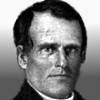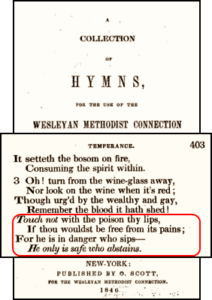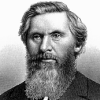See also: Bible says be sober again and again.
See also: Total Abstinence: Wesleyan Methodist Church of Australia (2016) ‘alcohol, tobacco, other harmful drugs … we deplore the industry …’ (WMC Australia)
‘…We believe that the sale and of tobacco, alcohol and other nonmedicinal drugs is a social evil which is draining and corrupting to society, and thus we believe that the best position is to practice total abstinence, protesting both the legal and illegal trade of such substances.’
1996 General Conference, Indianapolis, Ind., June 9–12, 1996.
‘Those admitted to membership in our churches commit themselves to demonstrate their life in Christ in such ways as to: …
Demonstrate a positive social witness by abstaining from all forms of gambling and by abstaining from using or trafficking (production, sale or purchase) in any substances destructive to their physical, mental and spiritual health, such as alcoholic beverages, tobacco and drugs (other than proper medical purposes of drugs)’
The Wesleyan Church, The Discipline (2022), 265.
‘We oppose the production, sale, purchase and use of alcoholic beverages, tobacco, narcotics, and other harmful drugs, unless for mechanical, chemical, or medicinal purposes (cf. 265:4). The unprescribed use of hallucinogens, stimulants, and depressants, and the misuse and abuse of regularly prescribed medicines should be prohibited; only on competent medical advice and under medical supervision should such drugs be used. The consequences to society stemming from substance abuse are of major concern because of their unarguably negative impact on the spiritual character and nature of individuals and the welfare of society. These include the creation of barriers to conversion, family dysfunction and breakdown, poverty, disease and death, increased violence and crime, the incalculable loss to national economies, and the destruction of the individual caught by the power of addiction. In light of the overwhelming evidence of damage to society and the spiritual health of the individual by the abuse of such substances, we believe that even where their use may be legalized, we choose total abstinence as our appropriate response…’
The Wesleyan Church, The Discipline (2022), 410. The 2002 Wesleyan general conference did re-affirm the important words “alcoholic beverages, tobacco” here in The Discipline as in earlier editions. The admonition of total abstinence is appropriate for us all – not merely something strongly suggested to consider individually. No denomination should merely suggest members individually consider not holding slaves. We should not merely suggest leaving the Masonic lodge. We should not merely suggest reverencing the name of our God. How weak and pathetic all these mere suggestions would be! Require it! A little leaven leavens the whole, not just an individual (1 Cor. 5:6, 11).
‘Only unfermented grape juice shall be used in observing the Lord’s Supper.’
The Wesleyan Church, The Discipline (2022), 5610.

‘Are you prepared, in the name of our heavenly Master, to stand forth for a new anti-slavery, anti-intemperance, anti-every-thing wrong, church organization?’ —Rev. Orange Scott in 1842
‘Life of Orange Scott’, p. 202. See short biography: Orange Scott – A Church Is Born by Dr. Lee M. Haines, Historian of The Wesleyan Church.
The first Wesleyan Methodist Discipline in 1843 included General Rules against “Drunkenness, or the manufacturing, buying, selling or using intoxicating liquors, unless for mechanical, chemical, or medicinal purposes; or, in any way, intentionally and knowingly, aiding others so to do.”

‘Touch not with the poison thy lips,
If thou wouldst be free from its pains;
For he is in danger who sips—
He only is safe who abstains.’
The anti-poison hymns were printed adjacent to the anti-slavery ones.
See early ‘Wesleyan Methodist hymnbook’ 1846, p. 403.
He attacked ‘the new doctrine of compromise,’ and organized the Wesleyan Methodist Connection in 1843.
‘John Wesley and his coadjutors in England, braved public opinion. When Mr. Wesley was expelled from the churches, he preached in grave-yards, public markets, and open fields! And though public opinion commanded Mr. Wesley to desist through the medium of mobs, still he stood it out! Shame on his compromising sons!’
Rev. Orange Scott, ‘Public Opinion’, Life of Orange Scott, p. 94.
Rev. Luther Lee became the President of the early Wesleyan Methodist Connection in 1844. See his sermon Prohibitory Laws.
‘As the pastor of a small company of [Wesleyan Methodist] Christians worshipping in this city … whose terms of membership require total abstinence from all intoxicating drinks—and non-fellowship for all slave-holding, I am more than content with my lot.’
Rev. Lucius C. Matlack, 1845, ‘Narrative of the Anti-Slavery Experience’.

‘We may not innocently stand by and permit the infliction of injuries by others’ ‘by forces, both moral and legal, we prevent all others from the worse than murderous traffic in liquors that can intoxicate.’
Rev. Adam Crooks, 1870, ‘Duty to denounce alcohol by Rev. Adam Crooks’, Wesleyan Methodist Church.
Methodists against using alcohol, ‘long before the temperance movements’ – Nathan Bangs
Nathan Bangs, in A History of the Methodist Episcopal Church (1838) quotes the Minutes of the 1780 Methodist Conference in Baltimore against slave-holding and alcohol:
‘By these minutes it will also be seen that the preachers of the day set their faces against “distilling grain into liquor,” determining to “disown those who would not renounce the practice.” From this it may be seen that the Methodist conference set itself against the use of alcoholic liquors long before the temperance movements, which have so distinguished the present days, and which have conferred such lasting blessing upon the community. What a pity that there should ever have been any relaxation of this rule!’
TEMPERANCE AND PROHIBITION
- We believe total abstinence from all intoxicating liquors as a beverage to be the duty of all Christians. We heartily favor moral suasion and the gospel remedy to save men from the drink habit.
- We believe that law must be an adjunct of moral means in order to suppress the traffic side of this evil. We believe that the State and the Citizen have solemn responsibilities and duties to perform in regard to this evil. We believe that for the State to enact any law to license or tax the traffic, or derive revenue therefrom, is contrary to the policy of good government, and brings the State into guilty complicity with the traffic and all the evils growing out of it, and is also unscriptural and sinful in principle and ought to be opposed by every Christian and patriot. We therefore believe that the only true and proper remedy for the gigantic evil of the liquor traffic is its entire suppression, and that all our people and true Christians everywhere should pray and vote against this evil, and not suffer themselves to be controlled by or support political parties that are managed in the interest of the drink traffic.
“Temperance and Prohibition” from Wesleyan Methodist Discipline 1892. The Discipline (1896 edition) lists these verses under Temperance and Prohibition: Prov. iv. 14-17; Isa. v. 11- 23; xxviii 7, 8; Matt. xxi. 12, 13; I. Cor. v. 11-13; Eph. iv. 27, 28; Jas. iv. 17. The Discipline (1963 edition) lists these verses under Temperance and Prohibition: Prov. 23:29-35; Isa. 5:11, 22; 28:7-8; Hab. 2:15-16; Gal. 5:21; Eph. 5:18.
The 1892 Discipline mentions the publication of Sabbath school papers including “Our Temperance Paper” for Sunday Schools.
“There should be a Temperance Department in every Sunday-School under the direction of a competent superintendent. The quarterly Sunday-School temperance lessons, literature, programs, addresses and other proper means should be employed to educate the young concerning the direful results of the use of intoxicating beverages and tobacco, and encourage them to sign the pledge against their use.”
Sunday Schools, Wesleyan Methodist Discipline (1915), 238.
COMMISSION ON PROHIBITION AND PUBLIC MORALS
“The Wesleyan Methodist and our school papers are suggested as mediums of publicity for the reports of this Commission… It shall be the duty of this commission to make a study of Prohibition and Moral Reforms and to keep the Church informed of the progress being made along these lines…”
Commission on Prohibition and Public Morals, Wesleyan Methodist Discipline (1923), 395.
General Rules
It is expected of all who are admitted to our churches that they should further evidence their desire for salvation by continuing: …
- To abstain from the manufacture, sale, and use of alcoholic beverages and all harmful drugs.
- To abstain from the cultivation, manufacture, sale, and use of tobacco.
Special Directions
Prohibition. The Wesleyan Church seeks the prohibition by law of the manufacture, sale, purchase, and use of alcoholic beverages, narcotics, and other harmful drugs, unless for mechanical, chemical, or medicinal purposes.
General Rules and Special Directions from The Wesleyan Church Discipline (1968)
Unfermented Grape Juice
“Only unfermented grape juice shall be used in observing the Lord’s Supper. It is recommended that only unleavened bread be used.” (Discipline 1968) In 1968, the term “only unfermented wine” was replaced with the equivalent “only unfermented grape juice.” Earlier editions used the wording: “Then the minister shall take the cup, which shall contain only unfermented wine.” The first Discipline in 1843 mandated “unfermented wine only should be used at the sacrament”.
Tobacco
“Ques. Have we any directions to give concerning the use of Tobacco?
Ans. In the judgment of the Wesleyan Methodist Connection the use of Tobacco is a great evil, and unbecoming a Christian, and a waste of the Lord’s money, and a defilement of the body, which should be the temple of the Holy Ghost.” Wesleyan Methodist Discipline (1892). It explicitly said: “We will not receive as licentiates or ministers, nor will we ordain or license to preach or exhort persons who use tobacco.” Also, it did “most earnestly request our members to be clean from its use in all forms, for Jesus’ sake.” From the first Discipline (1843), we read that preachers had always discouraged others from using tobacco in any form.
The 1985 General Conference proposed the ratification of a similar rule: “No person therefore who uses tobacco in any form shall be received to membership in any of our churches or conferences. Any person received to membership under this section, and thereafter becoming guilty of the use of tobacco, shall be proceeded against as in other cases of misdemeanor.” The Discipline (1896) lists these verses under Tobacco: Isa. lii. 11; Rom. vi. 12; xii. 1; I. Cor. vi. 13, 15, 19; II. Cor. vii. 1; I. Thess. iv. 7.
The Discipline (1927) explicitly said it will also “most earnestly require” any members to “refrain from its cultivation, manufacture, and sale, and to abstain from its use in all forms, for Jesus’ sake.” This amendment demonstrated foresight – lest future non-ministerial members try to make excuses for using tobacco – even though its use had already long been denounced as “a great evil, and unbecoming a Christian.”